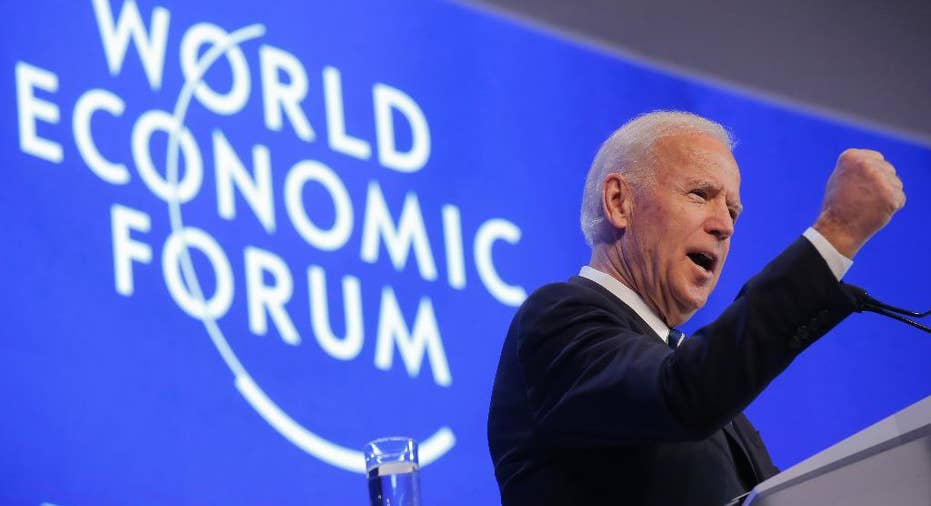The Latest: IMF chief says dealing with inequalities is key

DAVOS, Switzerland – The Latest on the World Economic Forum in Davos, Switzerland (all times local):
11:55 a.m.
Christine Lagarde, managing director of the International Monetary Fund, says that dealing with inequalities will have to be a central element of leaders' response to the concerns of populist movements.
Conceding that there is "no silver bullet response," Lagarde said on a panel at the World Economic Forum that it's time for "courageous" leaders to reconnect with the people.
She said that excessive inequality is "counterproductive" to sustainable growth, but that reversing globalization through more protectionism would be the wrong course. Redistributing wealth will be a central part of any strategy to deal with the inequalities, as will a deep analysis of how new technologies affect jobs.
Lagarde urged leaders not to "be resigned to taking the situation as it is."
Earlier this week, the anti-poverty campaigning group Oxfam said eight men own as much wealth as half the global population.
___
11:45 a.m.
U.S. Vice President Joe Biden has issued a "call to action" to Europe and the United States to defend the "liberal" world order, decrying a growing impulse in the West toward isolation and to "build walls" — a veiled criticism of plans of incoming President Donald Trump.
In his final major speech in his post, Biden said the greatest threat to the order — "I'll not mince words" — was principally Russia. He accused Moscow of seeking to "whittle away at the edges of the European project" that has brought decades of peace.
Biden acknowledged Wednesday to hundreds of people at the World Economic Forum in Davos that he'll hold his post for only another 48 hours, and quipped: "Then I can start to say what I think."
___
11:30 a.m.
Lawrence Summers, the former U.S. Treasury Secretary, has warned that Donald Trump's threats to firms using Mexico as a manufacturing base will be counterproductive and could lead to the loss of hundreds of thousands of American jobs.
Summers told a panel at the World Economic Forum that the president-elect's "rhetoric and announced policies" over Mexico have led to a big fall in the value of the Mexican peso against the dollar.
That, he said, is a "dagger at Ohio," as it will make it even more attractive for firms to move to Mexico.
The lesson of history, he added, is that "classic populism is invariably counterproductive for those in whose name it is offered as a policy regime."



















